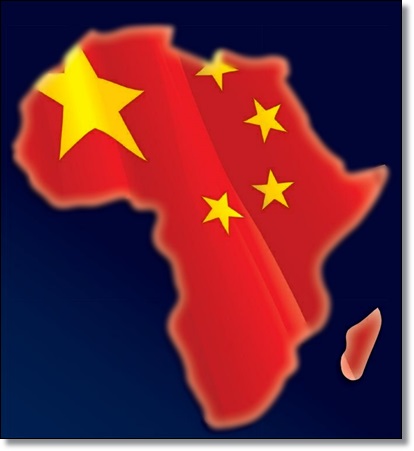China-Africa Relationship: Is it Really Win-Win?

 |
The symbolism of the timing couldn't have been more significant: The announcement coincided with the 50th anniversary of the first diplomatic ties between the "world's largest developing country and the continent with the largest number of developing countries."
This was followed by a summit of African heads of state in Beijing, where the leaders signed a declaration establishing what they described as "a new type of strategic partnership."
President Hu Jintao, the paramount leader of China between 2003 and 2013 in the summit unveiled the $1 billion China-Africa Development Fund (expected to rise to $5 billion) aimed at promoting economic cooperation between Africa and China "by investing directly in Chinese enterprises which have set up operations in Africa or plan to invest in Africa." The massive package also included concessionary loans, financial aid, and some debt cancellation.
Since then, the emerging superpower has become a dominant force in Africa. From South Africa to Sierra Leone, the red dragon's footprints can be found in almost 50 of Africa's 54 countries. In the last four years, China has given more loans to Africa than the World Bank. In the past decade, trade between China and the continent has increased more than six-fold to $130bn in 2010, making Africa China's largest trade partner. This "investment" is expected to be US$210bn in 2030.
It seems China is open and unapologetic about its strategic objectives in Africa. It is hungry for Africa's natural resources and has already secured deals for oil, minerals and trade amongst others. As well as its declared interest to tap into Africa's unsaturated markets for its manufactured goods, Beijing is also seeking to expand its global influence with the diplomatic help of African countries. If further evidence of China's statement of intent were required, then it came in the form a magnificent $210 million African Union (AU) headquarters in the Ethiopian capital Addis Ababa funded and constructed by China as a gift to the AU.
China is also deploying massive human and capital investment into infrastructure developments in several African countries. At present, Ethiopia, DRC, Kenya, Ghana and Sierra Leone are all beneficiaries of major road projects supported by China. However, while China's renewed activities in Africa have been applauded by many African leaders as an alternative to Western economic and political dominance, not everyone is comfortable with the so-called "partnership."
Indeed what China is doing in Africa now was similar to what Britain had done 150 years ago. During a visit to Tanzania in June 2011, US Secretary of State Hillary Clinton weighed into the debate, warning of a creeping "new colonialism." Without mentioning China, she said "African leaders must ensure that foreign projects are sustainable and benefit all their citizens, not only elites."
Almost all African nations got independence from foreigners less than 100 years ago. Before that, colonizers followed the same path the Chinese are following today to get into Africa. The Africans allowed the foreigners to settle in their nations the same way they are doing to the Chinese. When a reasonable number of the foreigners settled, they colonized the owners of the land.
The rate at which the Chinese are settling in Africa, indicate that there is a possibility that in the next 25 years, there will be more than 500 million Chinese in Africa. With the help of China, which is currently very powerful economically, the number will be large enough to “colonize Africa for the second” time and with great ease. But some Africans will argue that Africans are poor and they need help which they are now getting from China.
Then one big question comes, "why abandon the west"? There is no doubt about the concerns of the west regarding the undemocratic practices and human right abuses in most African Nations. African leaders are fleeing the west to China, to escape the enormous pressure from the west to end the dictatorship, human rights abuses and the rampant corruption which have seen many Africans languish in poverty. African leaders have found a sanctuary in China, where they can hide their skeletons.
For many years the West continued to give Africa a lot of assistance and hosting millions of Africans, who in return sustain the economies of their home countries. It is the reverse now with the Chinese who are being exported to Africa sending back millions of dollars from Africa, most of which is the loan given out to African Nations by China.
Africans continue to enjoy the green card program from the West and if denied this privilege today, there will be a very great effect on the African economy and hence a higher increase of unemployment. It is therefore inappropriate for Africans to embrace the political marriage between their leaders and China and at the same time run to the West to seek help to stop corruption and human rights' abuses in their nations.
The Chinese influx in Africa is part of the New World Order where there is a struggle for global supremacy economically and access to Africa's raw materials. China has overtaken Germany as the world's biggest exporter and they are on their way to being the world's largest economy - all the more reason why they need Africa's raw materials.
Furthermore the Chinese "interest" in Africa is purely for the survival and economic interest of the Chinese but not the economic emancipation of Africa. It is another form of imperialism/colonialism similar to the Western model.
By Okwaro Oscar Plato
The author is an analyst with Gravio Africa Consulting. These views are his own.
